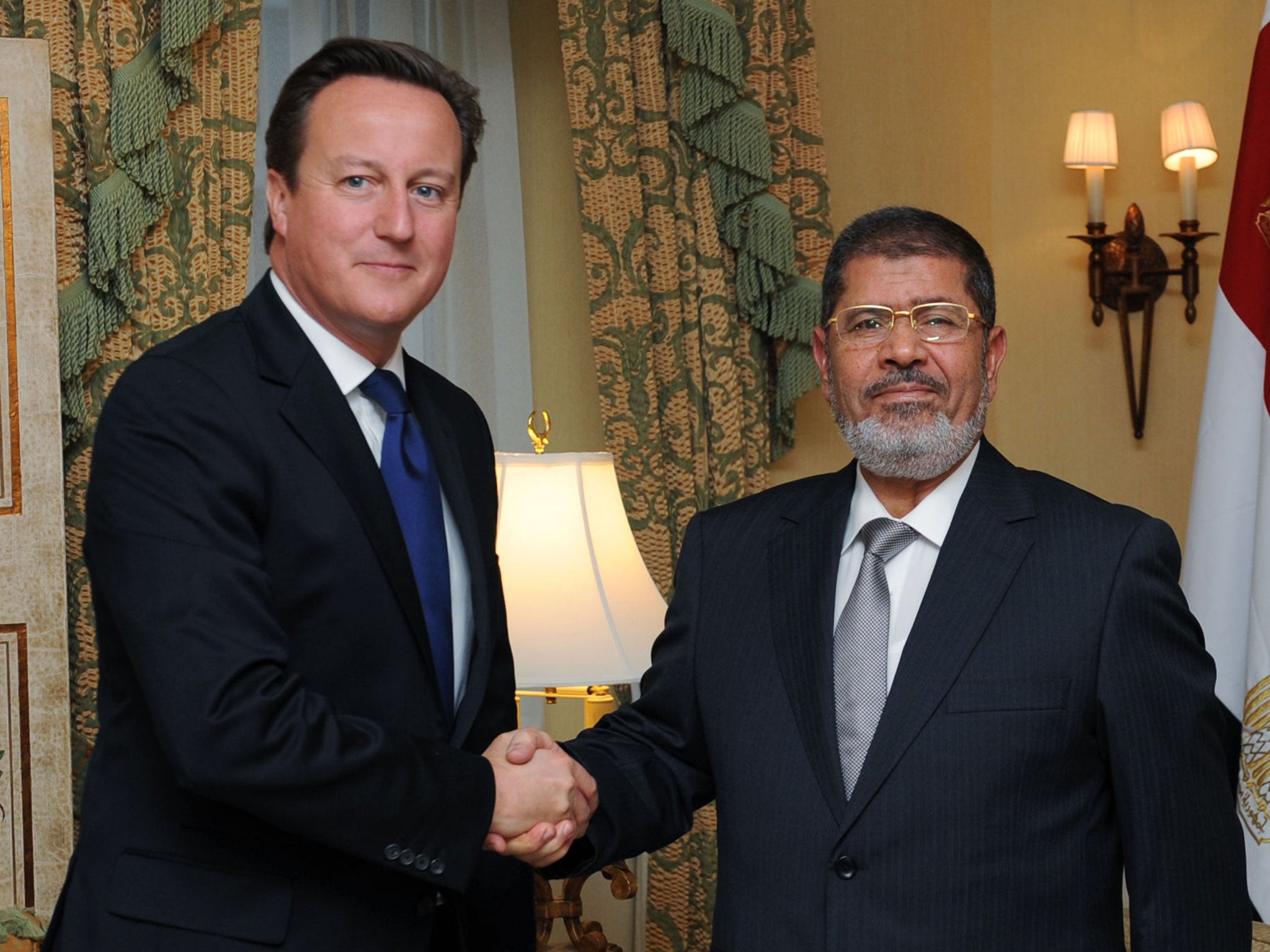Muslim Brotherhoood to launch legal challenge against UK Government after 'extremism' claims
David Cameron says parts of network have 'ambiguous relationship with violent extremism' after long-awaited review

The Muslim Brotherhood, the international Islamist network, will launch a legal challenge against a British Government review which has concluded that membership of the group is “a possible indicator of extremism”.
In a statement on the long-awaited review, David Cameron said parts of network had “a highly ambiguous relationship with violent extremism”.
However, lawyers for the group, whose Egyptian political wing won power in the 2012 elections, only to be overthrown in a military coup led by the Egyptian President Abdel Fattah al-Sisi, said the report was “deeply flawed”.
Mr Cameron ordered the review in 2014, amid reports of pressure from Gulf states the UAE and Saudi Arabia, as well as Egypt, for a tougher line against the group.
Although the review, led by former British diplomat Sir John Jenkins, stops short of recommending the Brotherhood be banned from Britain, it takes a hard line against the group, which has millions of supporters. The Government said it would keep the Brotherhood’s views and activities “under review”, but there will be no change in policy.
Saudi-influenced review ‘a murky relationship’
David Cameron’s decision in 2014 to launch a review of the British position on the Muslim Brotherhood came amid reports the Prime Minister was under pressure from wealthy Middle East allies to ban the group.
The Liberal Democrat leader Tim Farron pointed out the Saudi government had asked for the review and the autocratic rulers of the UAE are also thought to have wanted the British to ban the Brotherhood. Diplomats and Whitehall officials considered the review a bad idea at the time. Officials are said to have wrangled for months over what the report should say, and what aspects should be made public.
Banning a group which has such widespread support among Muslims throughout the world would have been highly controversial, but anything less risked attracting the ire of the Saudis and the UAE – putting lucrative trade deals at risk.
“The review conducted by the former British ambassador Sir John Jenkins was asked for by the Saudi government and shines a light into the shady corners of our relationship with the Kingdom,” Mr Farron said.
“We should decide these things based on real and credible intelligence and not pressure from Riyadh.”
In his written statement to MPs, Mr Cameron said the group was “deliberately opaque, and habitually secretive”. “It has been a rite of passage for some who have gone on to engage in violence and terrorism,” he said.
It emerged that Mr Cameron spoke to Sheikh Mohammed bin Zayed, one of the UAE’s senior leaders, on Wednesday, ahead of the review’s findings.
The Muslim Brotherhood’s Egyptian political proxy, the Freedom and Justice Party, said that Mr Cameron had “unfairly condemned” millions of Muslims. “We are most concerned the Prime Minister’s statement will afford comfort to those regimes in the region that abuse human rights in order to maintain their own autocratic rule,” said Amr Darrag, of the party’s executive board.
The Brotherhood, which is banned in Egypt, was subject to a brutal crackdown in the wake of 2013’s military coup with many hundreds of supporters of ousted President Mohammed Morsi killed.
Tayab Ali of the London-based ITN Solicitors, who is acting for the Muslim Brotherhood, said that allegations made by Mr Cameron: “Were “not representative of the discussions I had on behalf of my client with members of the review panel. “My client does not accept that the criticisms are credible; they are deeply misguided,” he said.
The review says the Brotherhood “played an important role in establishing and running” the UK’s largest Islamic umbrella group, the Muslim Council of Britain. It also claims the Council “has consistently opposed programmes by successive governments to prevent terrorism”.
The Council said it “rejects entirely the insinuation that it is… soft on terrorism”, and added that no single organisation had dominated the foundation of the group.
Join our commenting forum
Join thought-provoking conversations, follow other Independent readers and see their replies
Comments